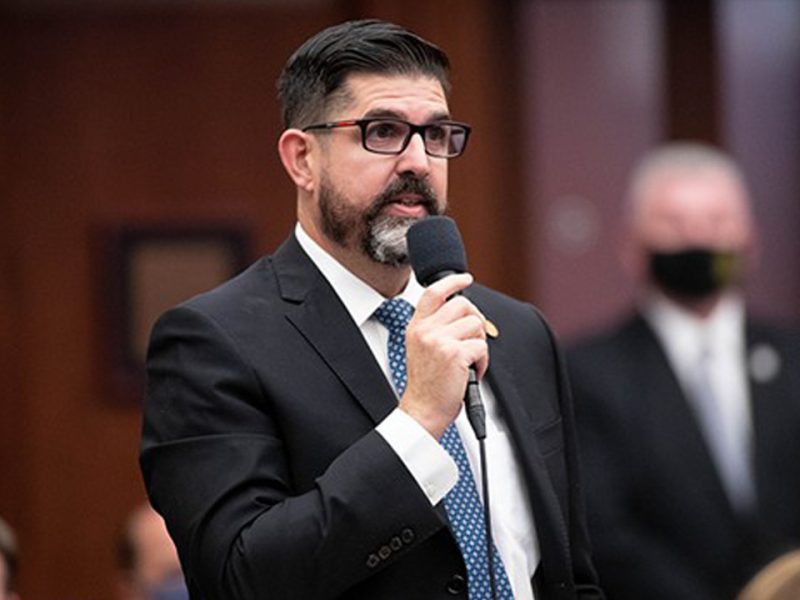
Florida Senate president: Gov. Ron DeSantis will veto social media minor ban
Florida Today | By Douglas Soule | February 29, 2024
Senate President Kathleen Passidomo said she thinks Gov. Ron DeSantis will veto legislation this week that would ban social media for minors in Florida younger than 16.
The Legislature would then send another bill to the governor with language more palatable to him, she explained.
“My understanding is that they are in a really good spot,” the Naples Republican told reporters during a Thursday afternoon press conference.
She’s referring to DeSantis and House Speaker Paul Renner, a Palm Coast Republican who is term limited this year. The ban (HB 1) was his priority bill this session, slated to end next Friday.

Senate President Kathleen Passidomo, R-Naples. Colin Hackley/NEWS SERVICE OF FLORIDA
He and DeSantis met Monday, according to a daily calendar released by the governor’s office. When asked about the meeting Wednesday, Renner said they were “looking at alternatives” but that he didn’t have anything to announce it.
If in fact the bill is vetoed, Passidomo predicted the House would quickly bring forward another bill (HB 3) and modify it with language DeSantis agrees on.
That bill, in its current form, requires age verification for pornographic websites. It has remained out of the spotlight for weeks, as its provisions were added to the social media bill now before DeSantis.
Renner and other legislative proponents of the bill continually tinkered with it as it moved through both chambers, trying to make it more likely to survive expected legal challenges — and more likely to get DeSantis’ signature. Similar measures have stalled in other states.
The governor has said for more than a month that he thinks parents should have a say in whether their child uses social media. He had concerns the legislation wouldn’t survive in the courts. He even criticized it hours before the House passed the bill, saying it wasn’t “there yet.”

Tina Descovich, left, and Tiffany Justice, co-founders of Moms for Liberty, speak at a meeting of the parents’ rights group in Philadelphia in June 2023. Justice says parents should control their children’s use of social media, not the government. MATT ROURKE/ASSOCIATED PRESS
Tiffany Justice, co-founder of the conservative Moms for Liberty, has objected to the proposal not having an exception for a parent’s permission: “Parents have fundamental rights to direct the upbringing of their children,” she said in an interview. “You’re not allowed to abuse your children. But should the government be controlling whether or not your kids use social media?”
Some of the changes lawmakers made to the legislation in recent weeks included tweaking the definition of a social media platform. Affected ones must in part have “addictive features,” including infinite scrolling, push notifications and auto-play videos.
Bill proponents have said the bill is focused not on banning minors or targeting platforms, but on making those platforms make changes to their features. “It’s a major existential threat to this generation and coming generations,” Renner said on Wednesday.





